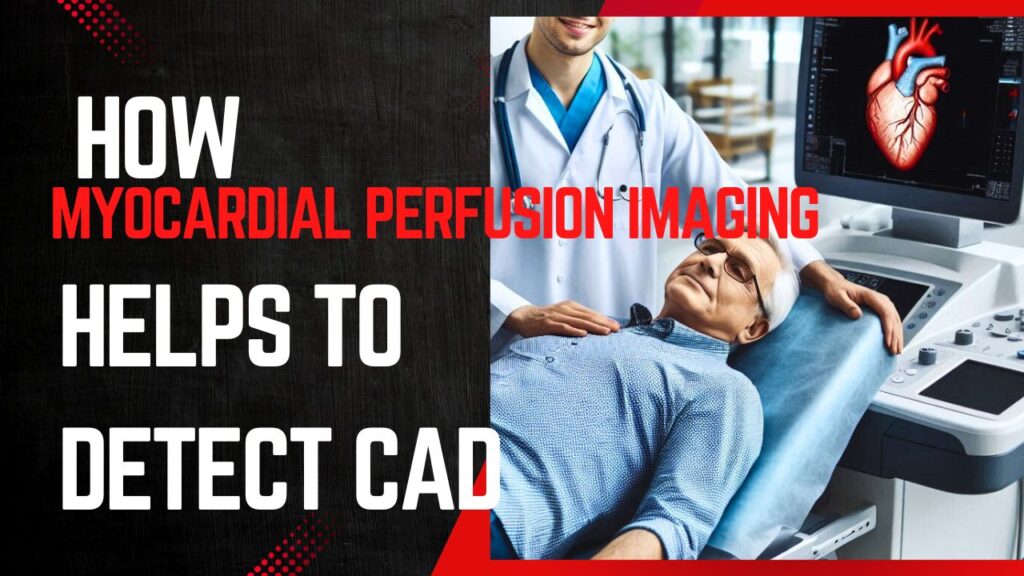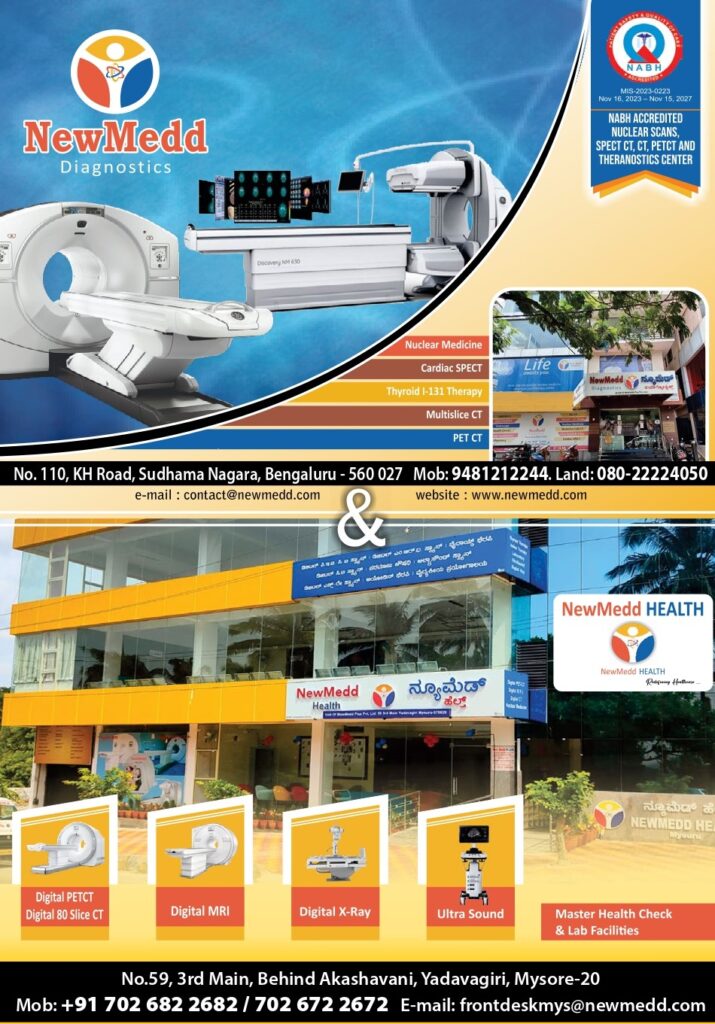A myocardial perfusion imaging (scan) is a valuable tool for diagnosing and managing heart conditions. It plays a crucial role in detecting coronary artery disease (CAD), assessing heart function, and guiding treatment decisions.


Coronary artery disease (CAD) is a leading cause of morbidity and mortality worldwide. It occurs when the coronary arteries that supply oxygen-rich blood to the heart become narrowed or blocked due to plaque build-up. Early and accurate detection of CAD is crucial for effective management and prevention of severe complications such as heart attacks. One of the most reliable diagnostic tools for CAD is Myocardial Perfusion Imaging (MPI), a type of nuclear cardiology test that assesses blood flow to the heart muscle.
What is Myocardial Perfusion Imaging?
Myocardial Perfusion Imaging (MPI) is a non-invasive imaging technique that evaluates the blood supply to the heart muscle both at rest and under stress. It uses a small amount of radioactive tracer, such as technetium-99m or thallium-201, which is injected into the bloodstream. A gamma camera detects the radiation emitted by the tracer, producing images of the heart that help identify areas with inadequate blood flow.
How MPI Detects Coronary Artery Disease
MPI is particularly effective in diagnosing CAD because it can reveal areas of the heart that receive reduced blood supply due to narrowed or blocked coronary arteries. The test is performed in two phases:
• Resting Phase – The patient receives the tracer injection while at rest, and images are taken to assess baseline blood flow to the heart.
• Stress Phase – The patient undergoes physical exercise on a treadmill or receives a pharmacologic stress agent (such as adenosine or dobutamine) to simulate the effects of exercise. The tracer is injected again, and additional images are captured.
By comparing the rest and stress images, doctors can determine if there are any areas of reduced blood flow, which is indicative of coronary artery disease.
Key Benefits of MPI in CAD Detection
• Early Diagnosis – MPI can detect CAD before symptoms such as chest pain (angina) appear.
• Assessing Severity – The test helps determine the extent and severity of coronary artery blockages.
• Guiding Treatment Decisions – MPI results help doctors decide whether a patient requires lifestyle modifications, medications, angioplasty, or coronary bypass surgery.
• Evaluating Treatment Effectiveness – After treatment, MPI can assess whether blood flow has improved.
• Predicting Future Cardiac Events – MPI provides valuable prognostic information on a patient’s risk of heart attack or other cardiac events.
• Non-Invasive – Unlike coronary angiography, MPI does not require inserting a catheter into the heart.
• High Sensitivity and Specificity – It provides accurate detection of CAD and assessment of blood flow abnormalities.
How MPI Assesses Blood Flow to the Heart
MPI is instrumental in assessing myocardial perfusion in several key ways:
• Detecting Coronary Artery Disease (CAD) – MPI helps identify narrowed or blocked coronary arteries by revealing areas of the heart that receive insufficient blood supply during stress.
• Evaluating the Severity of Ischemia – The test differentiates between mild and severe ischemia, helping physicians determine the urgency and type of intervention needed.
• Assessing Myocardial Viability – MPI can detect whether heart tissue is still viable and capable of recovery following a heart attack or if it has sustained irreversible damage.
• Monitoring Treatment Effectiveness – Physicians use MPI to assess the success of treatments such as medication, angioplasty, or coronary artery bypass surgery.
• Predicting Future Cardiac Events – The test provides valuable prognostic information, helping to estimate a patient’s risk of future heart attacks or cardiac complications.
When Should You Get a Myocardial Perfusion Scan?
• Symptoms Suggestive of Coronary Artery Disease (CAD): If you experience symptoms such as chest pain (angina), shortness of breath, fatigue, or unexplained dizziness, your doctor may suggest an MPS to determine whether your heart is receiving adequate blood supply.
• Abnormal Results from Other Tests: If an electrocardiogram (ECG), echocardiogram, or stress test shows abnormalities suggesting insufficient blood flow to the heart, an MPS can provide more detailed information about which areas of the heart are affected.
• Evaluating the Effectiveness of Previous Treatments: Patients who have undergone treatments such as coronary artery bypass grafting (CABG), angioplasty, or stent placement may need an MPS to assess the success of these procedures and ensure adequate blood flow is maintained.
• Determining the Severity of Coronary Blockages: If coronary artery disease has already been diagnosed, an MPS can help determine how severe the blockages are and whether further interventions, such as surgery or medication adjustments, are necessary.
• Pre-Surgical Evaluation for Non-Cardiac Surgery: For patients with risk factors for heart disease, an MPS may be required before undergoing major surgeries (e.g., orthopedic or abdominal surgeries) to evaluate cardiac function and ensure the heart can withstand the stress of the procedure.
• Assessing Heart Function in Patients with Previous Heart Attacks: If you have had a heart attack, an MPS can evaluate how well the heart muscle is functioning and identify any areas that may have been permanently damaged.
• Monitoring High-Risk Individuals: Individuals with multiple risk factors for heart disease—such as diabetes, hypertension, high cholesterol, smoking, obesity, or a strong family history of CAD—may undergo an MPS to detect potential heart problems early, even if they are asymptomatic.
Myocardial Perfusion Imaging is a highly effective tool for detecting coronary artery disease. By assessing blood flow to the heart under both rest and stress conditions, MPI helps identify blockages that could lead to serious heart complications. Its ability to guide treatment decisions and predict future cardiac events makes it a crucial component of modern cardiology. If you are at risk for CAD, consult doctor to see if MPI is right for you.
Leadership and Expertise


Dr. Murali R. Nadig, a prominent figure in nuclear medicine and PETCT, serves as the Medical Director of NewMed Diagnostics in Bangalore. With a medical degree from Mysore and post-graduation from AIIMS, Delhi, Dr. Nadig brings extensive expertise to the center. NewMed Diagnostics is notable for being the first and only nuclear medicine, PETCT, and radio nuclear facility in the state, leading the field for the past four years.
The combination of advanced technology, skilled technicians, and direct involvement of doctors at NewMed Diagnostics Center underscores its commitment to providing top-tier diagnostic services, ensuring precise disease detection and effective treatment.
For more information, please contact:
NewMedd Diagnostics
Bengaluru
No. 110, KH Road (Double Road), Land Mark: Next to Suzuki Show Room, Sudhama Nagara, Bengaluru – 560027 Ph: 080-2222 4050 / 94812 12244
Mysuru
No 59, 3rd main, Behind Akashavani, Yadavagiri, Mysuru – 20
Ph 70268 22682 / 70267 22672













